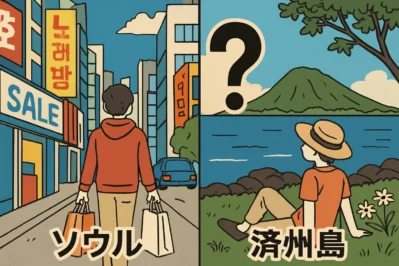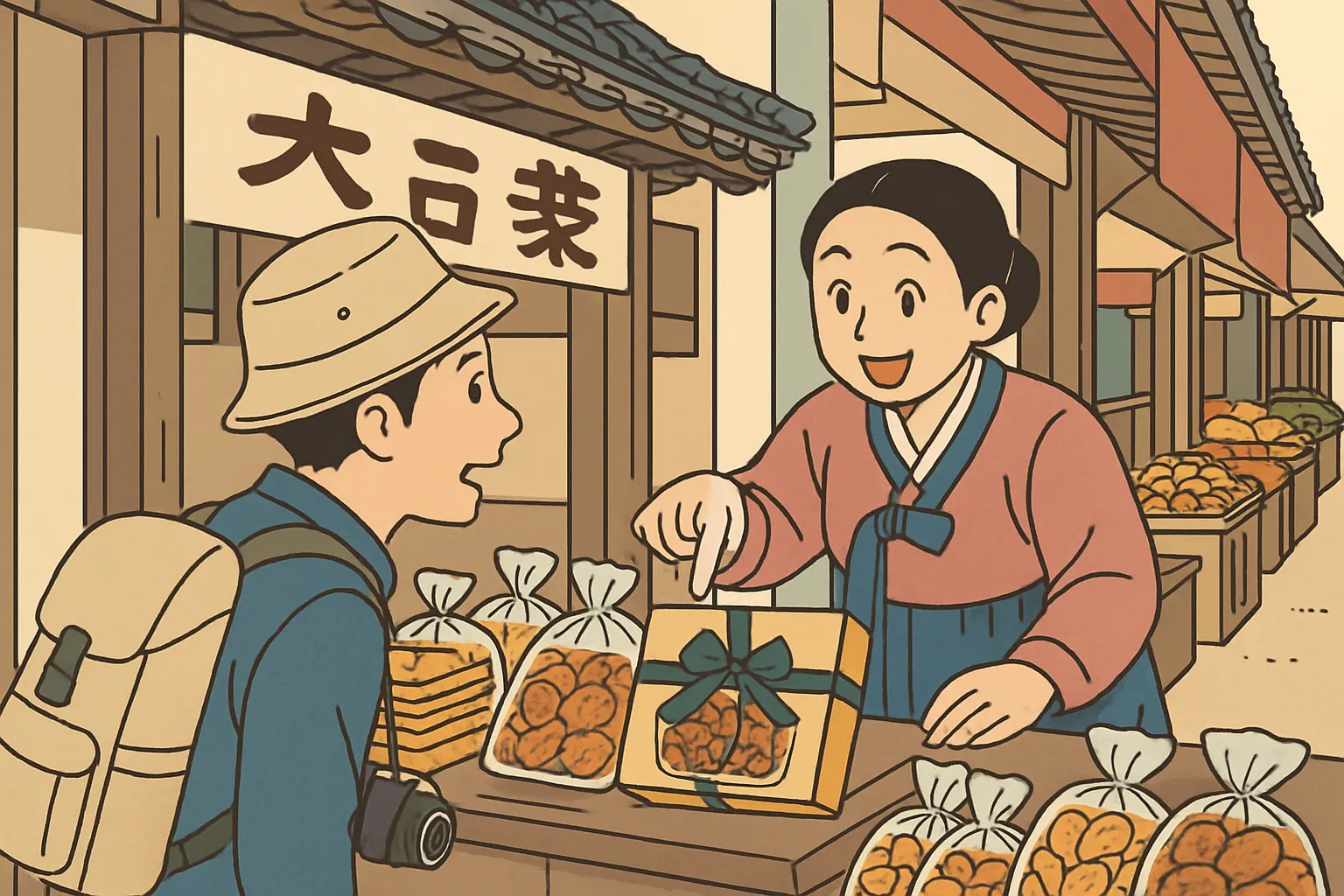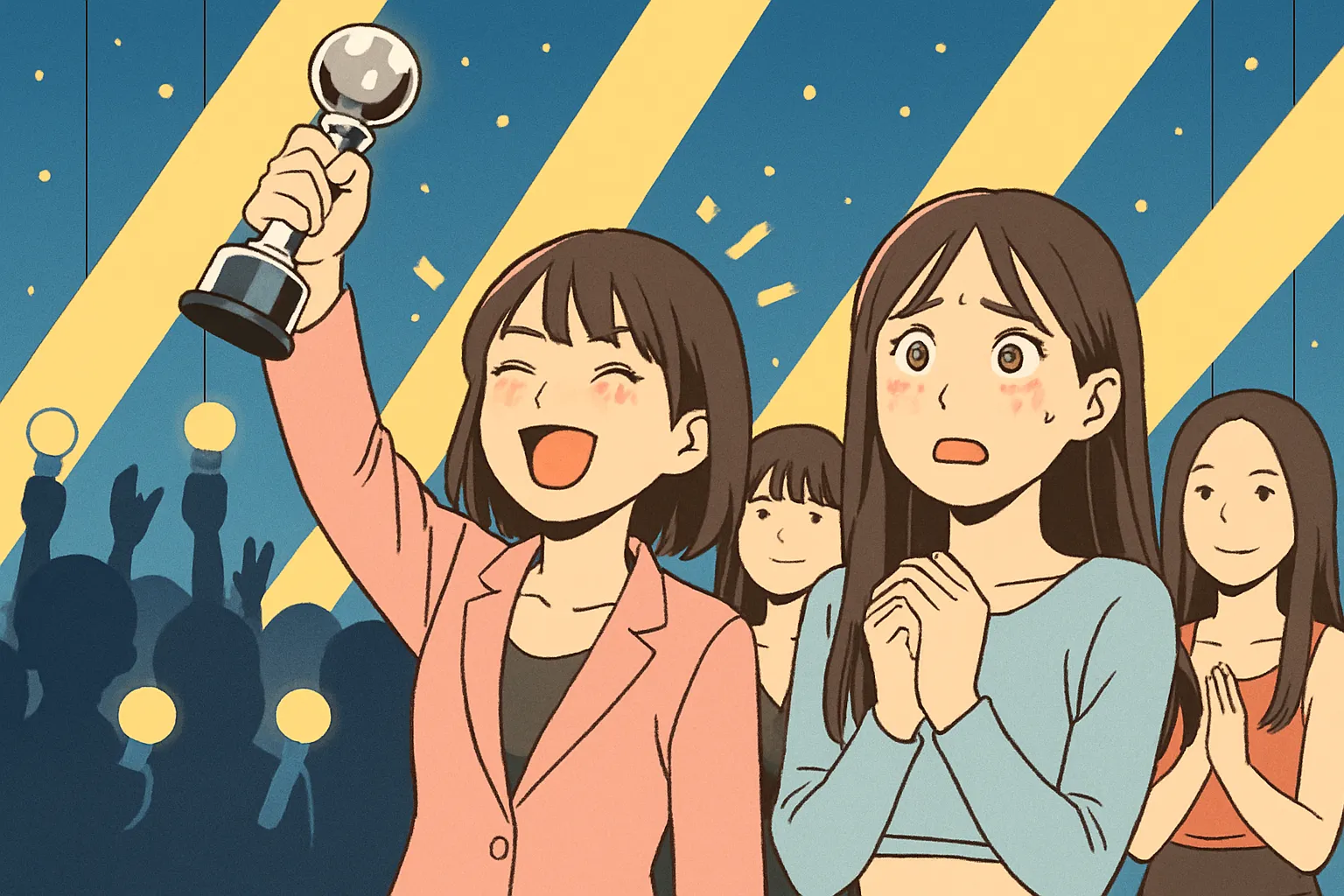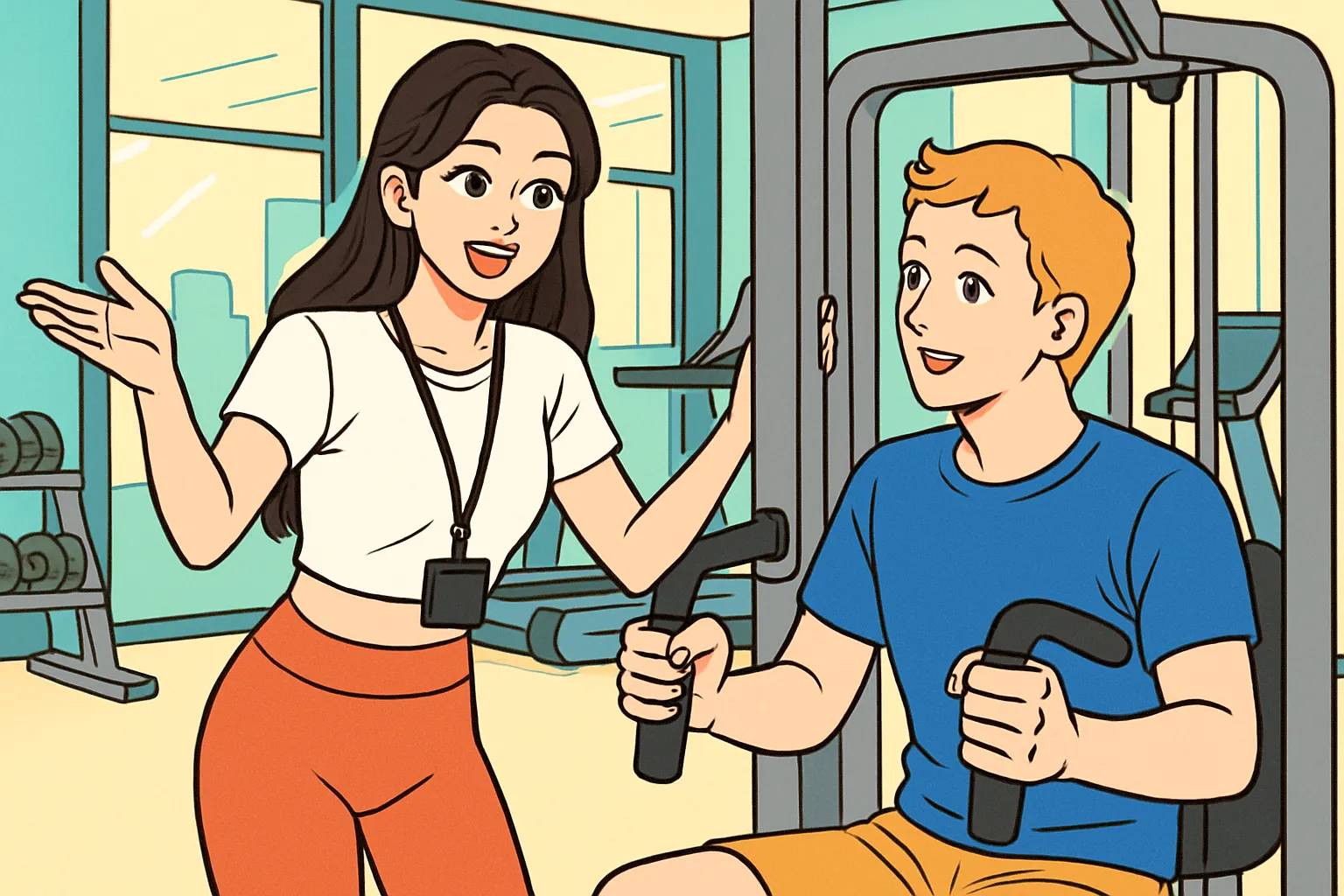Seoul vs. Jeju? Pick Your Perfect Korean Trip!
Hello! Welcome to [Maeil Hangeul], where we upgrade your Korean skills every day!
Have you ever debated with a friend about where to go on vacation? “Should we hit the bustling city streets or relax by the serene sea?” Today, we’re going to learn how to compare experiences in Korean, specifically focusing on travel! This is super useful for planning trips with friends or just sharing your travel preferences.
Lately in Korea, “healing travel” (힐링 여행) is a huge trend. After a busy week, many people love to escape, but the perfect “healing” spot is different for everyone. Some find energy in the vibrant city of Seoul, while others recharge in the beautiful nature of Jeju Island. Let’s learn how to talk about it!
Key Expressions of the Day
Here are three essential expressions to compare your travel ideas like a pro!
1. (Noun) + 보다 (boda)
* Pronunciation [Romanized]: bo-da
* English Meaning: than
* Detailed Explanation: This is the most fundamental way to compare two things in Korean. You attach 보다 directly to the noun you are comparing against. It’s the Korean equivalent of “more than” or “less than.” It’s neutral and can be used in both casual and formal situations.
* Example: 저는 커피보다 차를 좋아해요. (jeo-neun keo-pi-bo-da cha-reul jo-a-hae-yo) -> I like tea more than coffee.
2. 장단점 (jang-dan-jeom)
* Pronunciation [Romanized]: jang-dan-jeom
* English Meaning: Pros and cons / Strengths and weaknesses
* Detailed Explanation: This is a fantastic noun made of two Hanja (Chinese characters): 장 (長) meaning long or “strength,” and 단 (短) meaning short or “weakness.” You can use this word when you want to discuss the good and bad points of something.
* Example: 우리 여행 계획의 장단점을 이야기해 봐요. (u-ri yeo-haeng gye-hoe-gui jang-dan-jeom-eul i-ya-gi-hae bwa-yo) -> Let’s talk about the pros and cons of our travel plan.
3. 분위기가 좋다 (bun-wi-gi-ga jo-ta)
* Pronunciation [Romanized]: bun-wi-gi-ga jo-ta
* English Meaning: The atmosphere/vibe is good.
* Detailed Explanation: 분위기 (bun-wi-gi) means “atmosphere” or “vibe.” This is a perfect phrase to describe the feeling of a place. You can describe a café, a city, or a nature spot with it. If the vibe is different, you can say 분위기가 다르다 (bun-wi-gi-ga da-reu-da).
* Example: 이 카페는 조용해서 분위기가 좋아요. (i ka-pe-neun jo-yong-hae-seo bun-wi-gi-ga jo-a-yo) -> This café is quiet, so the vibe is good.
Example Dialogue
Let’s see how these expressions are used in a real conversation between two friends, Mina and Chris, planning their vacation.
A (Mina): 이번 휴가 때 서울 갈까? 맛있는 것도 많고 쇼핑하기도 좋잖아.
(Ibeon hyu-ga ttae Seoul gal-kka? Mas-it-neun geot-do man-ko syo-ping-ha-gi-do jo-cha-na.)
Shall we go to Seoul for this vacation? There’s lots of delicious food and it’s great for shopping.
B (Chris): 음… 나는 제주도에 가고 싶어. 서울보다 공기가 맑고 경치가 더 예쁘잖아.
(Eum… na-neun Jeju-do-e ga-go si-peo. Seoul-bo-da gong-gi-ga mak-go gyeong-chi-ga deo ye-ppeu-ja-na.)
Hmm… I want to go to Jeju Island. The air is cleaner and the scenery is prettier than Seoul.
A (Mina): 하긴, 서울 여행이랑 제주도 여행은 장단점이 확실히 다르지.
(Ha-gin, Seoul yeo-haeng-i-rang Jeju-do yeo-haeng-eun jang-dan-jeom-i hwak-sil-hi da-reu-ji.)
You’re right, a trip to Seoul and a trip to Jeju definitely have different pros and cons.
B (Chris): 응! 그리고 요즘 드라마 ‘웰컴투 삼달리’ 보니까 제주도 분위기가 너무 좋더라! 정말 힐링될 것 같아.
(Eung! Geu-ri-go yo-jeum deu-ra-ma ‘Wel-keom-tu Sam-dal-li’ bo-ni-kka Jeju-do bun-wi-gi-ga neo-mu jo-teo-ra! Jeong-mal hil-ling-doel geot ga-ta.)
Yeah! And after watching the recent K-drama ‘Welcome to Samdal-ri,’ I think Jeju’s atmosphere is so good! I think it would be truly healing.
Culture Tip & Trend Deep Dive
In our dialogue, Chris mentions “healing” (힐링). This isn’t just a buzzword; it’s a core part of modern Korean culture! Many Koreans, especially the younger generation, feel immense pressure from the fast-paced “ppalli-ppalli” (빨리빨리, “hurry-hurry”) culture.
Because of this, “healing travel” has become essential.
* City Healing: For some, “healing” means enjoying fancy desserts, shopping for the latest trends, and visiting pop-up stores in bustling areas like Seongsu-dong in Seoul. It’s a way to de-stress by indulging in fun and excitement.
* Nature Healing: For others, it means completely disconnecting. Trips to Jeju Island, Gangwon-do province, or even a quiet “temple stay” (템플스테이) are incredibly popular. The goal is to find peace, quiet, and beautiful scenery.
So, when you use today’s phrases to talk about travel, understanding this cultural background of “healing” will make you sound even more like a native speaker! You’re not just comparing places; you’re comparing different ways of recharging your soul.
Let’s Wrap Up & Practice!
Great job today! We learned how to compare travel destinations using three awesome expressions: -보다 (than), 장단점 (pros and cons), and 분위기가 좋다 (the vibe is good).
Now it’s your turn to practice!
Practice Question:
Fill in the blank with the correct expression we learned today.
- 저는 활동적인 도시 여행______ 한적한 자연 여행의 ______이 궁금해요.
(jeo-neun hwal-dong-jeog-in do-si yeo-haeng______ han-jeok-han ja-yeon yeo-haeng-ui ______-i gung-geum-hae-yo.)
I’m curious about the ______ of an active city trip ______ a quiet nature trip.
Leave your answers in the comments below! Or even better, tell us your preference: 도시가 좋아요, 자연이 좋아요? (Do you like the city or nature?) Use the expressions you learned today






